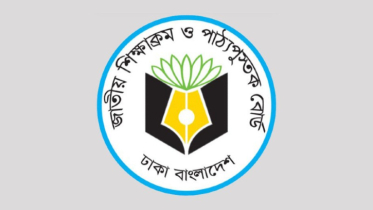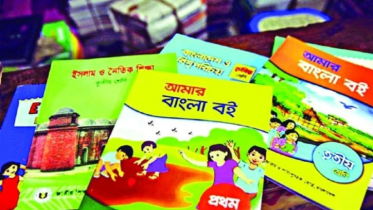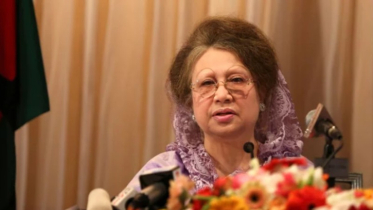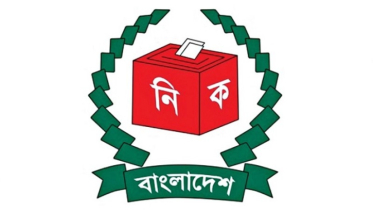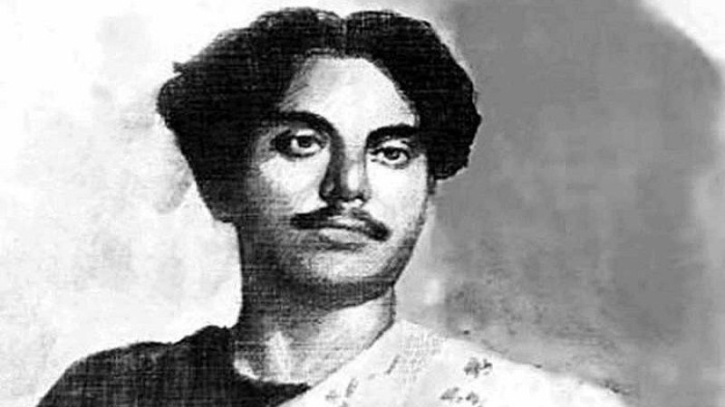
Kazi Nazrul’s death anniv today
Today is the 48th anniversary of the death of national poet Kazi Nazrul Islam.
Born at Churulia of Burdwan in India’s West Bengal on Jyaishtha 11, 1306, Nazrul Islam was a history-conscious poet of both ancient and contemporary period.
He fought against foreign rule, imperialism, colonialism, fundamentalism and exploitation through literature, journalism and political activism.
Nazrul was attracted to folk theatre — with its mixture of poetry, song and dance — which forced him to leave his duties at the local shrine and mosque, and joined a Churulia-based professional ‘leto’ troupe to earn his living at the age of nine.
Besides acting with the troupe, he learnt the art of composing poems and songs, and learnt about the Hindu puranas.
He composed a number of folk plays for the leto troupe, including ‘Chashar Sang’, ‘Shakunibadh’, ‘Raja Judhisthirer Sang’, ‘Data Karna’, ‘Akbar Badshah’, ‘Kabi Kalidas’ and ‘Rajputrer Sang’.
Later, he worked with a ‘Kabigaan’ troupe and also took up a job at a bakery.
Nazrul’s talent grabbed the attention of police officer Kazi Rafizullah, who gave him shelter at his house at Trishal in Mymensingh in 1914, and got him enrolled in Class VII at Darirampur High School.
Before joining the army in 1917, he was influenced by four of his teachers at Raniganj Searsole Raj School, where he continued his studies up to class X.
Satishchandra Kanjilal influenced Nazrul in classical music, Nibaranchandra Ghatak in revolutionary ideas, Hafiz Nurunnabi in Persian literature and Nagendranath Bannerjee in literature.
His first poem ‘Mukti’, first story ‘Baunduler Atmakahini’, and a number of other writings such as ‘Byathar Dan’ and ‘Meher Nigar’ were published during his stay in the army.
His life as a journalist began with the publication of the ‘Nabajug’ in 1920. He also started a fortnightly magazine ‘Dhumketu’ in 1922.
Along with carrying out his journalistic activities, writing about the socio-political aspects of the national and international developments, Nazrul was also attending cultural activities, social gatherings and rendering songs, and various political meetings with Indian Communist Party leader Muzaffar Ahmed.
The British colonial government proscribed his books and newspapers and put him behind bars. In support of his 40-day hunger strike, Rabindranath dedicated one of his books titled ‘Basanta’ to him.
Nazrul was also jailed for one year for his political poem ‘Anandamayeer Agamane’. While in prison, the poet wrote his masterpieces, including ‘Aj Srishti Sukher Ullase’, ‘Abhishap’, ‘Jater Naame Bajjati’, ‘Bhangar Gaan’ and ‘Shikal Para Chhal’.
Musicologist Mohini Sengupta set a few of his songs to music and published with their notations.
After the passing away of Rabindranath Tagore on August 7, 1941, Nazrul spontaneously composed two poems titled ‘Rabihara and ‘Salam Astarabi’, and an elegy, ‘Ghumaite Dao Shranta Rabire’.
The poet is particularly noted for his unique and unparalleled poem ‘Bidrohi’.
According to the Nazrul Institute, Nazrul wrote 3,174 songs, 600 poems, three novels and 43 essays in his short artistic career of just over 20 years, before he lost his speech in 1941.
Nazrul was brought to Dhaka from Kolkata in May 1972. Dhaka University awarded the poet the honorary degree of DLit in 1974 for his contribution to Bangla literature and culture.
The Bangladesh government granted him citizenship of Bangladesh in 1976 and awarded him the Ekushey Padak.
The poet passed away in Dhaka on Bhadra 12, 1383.























